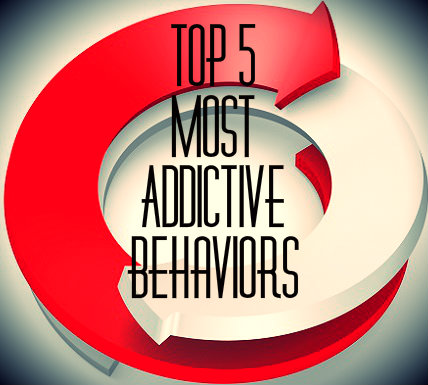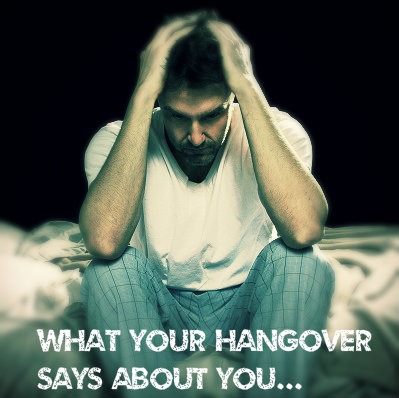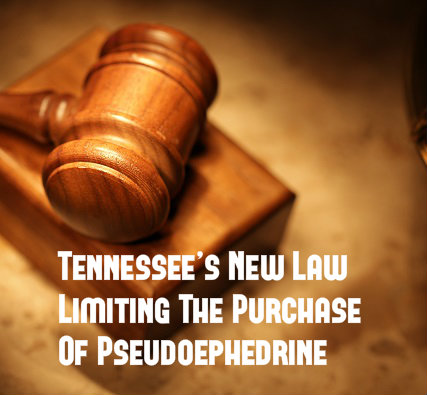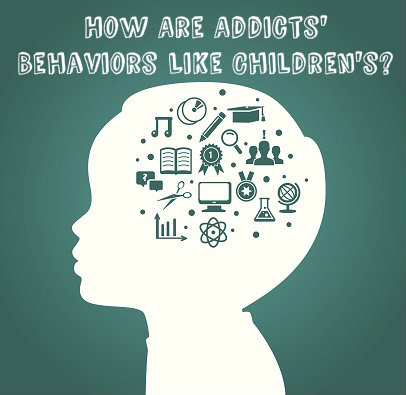03 Oct 2014
Top 5 Most Addictive Behaviors
Drugs and alcohol are not the only things that can lead you down the path to a dangerous obsession and addiction. Behaviors can be addictive too. Experts call these behavioral or process addictions and they can be nearly as damaging as a drug addiction or alcoholism.
Most of us will not become obsessed with a behavior or activity to the point of addiction, but none of us are completely risk-free. Learn what the experts say are the most potentially addictive behaviors so that you can avoid getting hooked on them. While you need not avoid these activities entirely, you should be aware that they can lead to addictive behaviors.
Top Behavioral Addictions
Researcher Dr. Reef Karim, a specialist in behavioral addictions, reviewed studies to find which behaviors are the most addictive.
 Gambling – Gambling tops that list. Gambling disorder affects two percent of the population and is the only behavior that gets widespread support as a true behavioral addiction. Much research on problem gambling has been conducted and has found that gamblers experience a high when winning, similar to the experience of drug use. They also experience withdrawal when not gambling, including physical symptoms like headaches and insomnia.
Gambling – Gambling tops that list. Gambling disorder affects two percent of the population and is the only behavior that gets widespread support as a true behavioral addiction. Much research on problem gambling has been conducted and has found that gamblers experience a high when winning, similar to the experience of drug use. They also experience withdrawal when not gambling, including physical symptoms like headaches and insomnia.
- Internet And Gaming – This type of addictive behavior is a recent addition, but a powerful one. Most experts agree that Internet gaming disorder is a real problem for some people and one that is very similar to drug addiction. Much of the evidence for Internet addiction being a real disorder comes from Asia. Young men there in particular have become so obsessed with gaming that they stop eating and neglect all other responsibilities, including the care of children. This level of obsession is similar to what drug addicts experience.
- Sex Addiction – That sex can become addictive is not surprising. The experience activates the reward system in the brain, as do drugs and alcohol. While regular and frequent sex with one partner is not unhealthy, obsessive sexual activities are. Compulsively using pornography, looking for sex with strangers or engaging in exhibition are behaviors that are considered signs of an unhealthy obsession with sexual activities.
- Eating – Food also activates our reward centers, especially foods that are high in fat, sugar or salt. Eating disorders like bulimia and anorexia are dangerous and involve compulsive behaviors, but they are not addictive disorders. Compulsive overeating, on the other hand, shares characteristics with drug and alcohol addiction. Also known as binge eating, this behavior includes obsessing over food. Compulsive eaters tend to spend an unnatural amount of time thinking about food, planning meals, and frenzied eating to the point of getting sick. Between two and four percent of Americans may struggle with binge eating.
- Shopping – Compulsive shopping is controversial among experts. Some think it can be classified as a behavioral addiction, while others are on the fence. More research is needed to clarify, but it seems that buying something you really want activates the reward system in your brain. Developing this obsession is harmful because it can lead to serious financial problems.
There are a number of behaviors that can become obsessive, but these five are the most common. Just like a drug addiction, these behaviors can cause you to engage in them compulsively, ignore your responsibilities, develop withdrawal, experience highs and ultimately even ruin your life. Be aware of the possibility of behavioral addictions and look for signs of obsessions in yourself and those you love so you can get professional help if needed.
Read Our Other Behavioral Addictions Posts
02 Oct 2014
What Hangovers Can Tell You About Your Drinking
Drinking is a risky behavior. You can have an accident. You can drink too much, black out and forget what happened the night before. You can end up saying things you regret. And, of course, most of us have experienced the dreaded morning-after hangover. If you drink responsibly and moderately, you don’t have to worry about these things.
Types Of Hangovers And What They Say About You And Your Drinking
If you are questioning whether your drinking habits are risky or getting out of control, let your hangovers be your guide; they can be illuminating.
The Occasional, Regrettable Hangover
 An occasional hangover is not that unusual for the moderate social drinker. We all have those regrettable moments when we go one drink too far. The next morning you wake up with your tongue stuck to the roof of your mouth, the room spinning and your head pounding. You try to remember what went wrong the night before and then slug back water in a desperate attempt to feel normal again.
An occasional hangover is not that unusual for the moderate social drinker. We all have those regrettable moments when we go one drink too far. The next morning you wake up with your tongue stuck to the roof of your mouth, the room spinning and your head pounding. You try to remember what went wrong the night before and then slug back water in a desperate attempt to feel normal again.
This type of hangover, if it occurs once or twice a year, is probably not a big deal. And it is not likely to be indicative of a drinking problem. It’s normal to make this mistake and only if you never drink or you rule your drinking with an iron fist will you never have a hangover.
The Slight, But Constant Hangover
A hangover can come in a range of severities. For most normal drinkers, the worst hangovers are rare because we learn our lessons, at least for a while. The normal reaction to a bad hangover is to avoid drinking too much in the future. But what if you drink regularly and wake up most mornings with mild symptoms? Maybe you have a slight headache or you just feel unrested, like you didn’t sleep well.
This mild kind of hangover, occurring several times a week, is a sign that you are developing a drinking problem. If you truly drink moderately, meaning one to two drinks at a time no more than a few nights a week, you shouldn’t feel bad in the mornings. These little hangovers are telling you that you are drinking too much and you are drinking too often. Just because you aren’t experiencing a full-blown morning-after event doesn’t mean you aren’t abusing alcohol. Slow down and cut back now before it gets worse.
The “I’ll Never Feel This Way Again” Hangover
I’ll never drink like that again! Have you ever said this before? Most of us have, which is fine if you act on that sentiment. If you find yourself saying or thinking this, but tack on an “until next weekend,” you have a problem. Not adjusting your behavior in response to a bad hangover is not normal and it indicates that you are drinking too much too often. Try to cut back and if you find that you are struggling to do so, you may need some professional help or a support group.
The Hair Of The Dog Hangover
What if you have regular hangovers and to get through them you have a little morning drink? This is a sign that you are already on a dangerous path. If you need a drink to help you feel better in the morning, you could be well on your way to alcoholism. Stop drinking now and turn to professionals for help. If you’re not sure where to turn, start with a trusted friend or family member who cares about you. You need support now more than ever.
Listen To What Your Body Is Telling You And Get Alcohol Abuse Help
Hangovers are no fun and how often and how badly you have them, and how you respond to them, can tell you a lot about your drinking and whether it’s problematic. Listen to what your body is telling you and adjust your drinking behaviors or get the help you need.
Learn More – Moderation vs. Abstinence: Which Works Best For Problem Drinkers?
01 Oct 2014
Are You Codependent?
Codependency is a term that derived several decades ago from the term co-alcoholism. It was coined to describe the role of the spouse of an alcoholic. Today that term has evolved to head a number of symptoms of dysfunctional relationships, both those with an addict and without. A codependent relationship can exist without any type of addiction. But, if you are the partner or spouse of an addict your odds of being codependent are greater. What does this mean? And how do you know if you are codependent?
Having An Addicted Partner And Codependency
 If you do have a partner addicted to drugs or alcohol, or even with a behavioral addiction, you should learn more about codependency and what it means. Your partner definitely needs treatment for addiction, but you may benefit from therapy as well. Being the partner of an addict takes its toll. A simple definition would state that being codependent means drawing your self-esteem and self-worth from your partner.
If you do have a partner addicted to drugs or alcohol, or even with a behavioral addiction, you should learn more about codependency and what it means. Your partner definitely needs treatment for addiction, but you may benefit from therapy as well. Being the partner of an addict takes its toll. A simple definition would state that being codependent means drawing your self-esteem and self-worth from your partner.
This type of dynamic often exists between an addict and their partner because of the balance they strike together. Addicts need someone to enable their habit, make excuses for them and care for them. Codependents need someone to care for and someone to need them. Together the two fit perfectly, if not healthfully.
Signs You Might Be Codependent
Are you codependent? Here are some signs that might indicate you are:
- You Have Low Self-Esteem – Codependents often have a poor sense of self-worth. They feel unworthy of love. They compare themselves to others and come up feeling inadequate. You may be good at hiding this, even from yourself, so dig deep and think about how you really feel.
- You Love To Please Others – If you are codependent, you take much of your self-worth from caring for someone else. As a result, you may be afraid to upset anyone. You can’t say no and you go out of your way to make sure others are happy, often at the expense of your own needs.
- You Ignore Warnings Signs – Problems that your partner has, like his addiction, are crystal clear to others, but you ignore them. You make excuses for his drug or alcohol use and his inappropriate behaviors. You stay in the relationship despite the fact that he is not meeting your needs.
- You Have Poor Boundaries – Codependents have a hard time setting or staying within relationship boundaries. You may have either weak or rigid boundaries. Maybe you share too much personal information or give too much of yourself. On the other hand, you may be withdrawn and unwilling to let anyone see what you’re feeling.
- You Need Control – You like to be in control because it makes you feel safe. This comes out in the form of controlling your partner, or trying to. Controlling can look like caring. Your need to please others or to care for your partner can be a form of control.
- You’re Afraid Of Being Alone – You see the issues in your relationship, but you ignore or deny them because you fear ending it. Being alone scares you because you take your sense of self-worth from your partner. You may be miserable, but you’re going to stay.
Treatment For Codependency
Codependency is not uncommon. If you see these signs in yourself and your relationship, you are far from alone. Still, this type of relationship is unhealthy, especially when one partner is an addict. Treatment can reverse codependency and help you learn to love yourself without needing someone else. Treatment can also help your partner overcome addiction. The important first step is to recognize the problem. Then you can both get help.
If You’re In A Relationship With An Addict Should You Stay Or Leave? Read More Now!
30 Sep 2014
Does Drug Rehab Work?
Drug rehab success statistics are difficult to measure. One reason is that addiction is a chronic disease. With any chronic disease you can expect to relapse and to need some type of treatment over an entire lifetime. Addiction is not like an acute sickness that can be treated once and cured. If you struggle with a drug addiction, rehab will help you, but you have to recognize that it does not represent a cure for your illness. What rehab can do is guide you onto a path of lifelong sobriety that you will work on for the rest of your life.
Rehab Information And FAQs
Learn more about rehab information and rehab FAQs.
What Do They Do In Rehab?
 Rehab is short for rehabilitation and it refers to a program of treatment that will help you learn how to get sober and how to stay sober once you leave treatment. Rehab includes detoxifying the body and working through the inevitable withdrawal symptoms. Once you have completed detox you can expect to progress through a treatment plan devised by you and experienced addiction and health professionals.
Rehab is short for rehabilitation and it refers to a program of treatment that will help you learn how to get sober and how to stay sober once you leave treatment. Rehab includes detoxifying the body and working through the inevitable withdrawal symptoms. Once you have completed detox you can expect to progress through a treatment plan devised by you and experienced addiction and health professionals.
Treatment in rehab includes individual therapy, family therapy, support groups and group therapy as well as supplemental activities such as art therapy, exercise, meditation and other holistic practices. You may also be treated with medication while in rehab. You can also expect to learn about living your new sober life outside of rehab and coping mechanisms to help you resist urges to relapse.
What Makes Rehab Successful?
Although it’s hard to say that rehab works for everyone, it does help most addicts get clean. The most successful drug rehab programs are those that create individualized treatment plans. Everyone is different and one plan will not work for everyone. Rehab also works when there are experienced, trained and committed professionals working to help you. Finally, successful drug rehab includes a commitment and hard work from you, the client. When you put in the time and the effort to get well again, you can expect that rehab will work for you.
Life After Rehab
Because addiction is a chronic disease, you have to remember that rehab is not the end of your treatment. People who think that rehab doesn’t work are often misinformed and expect to be cured by the end of their stay. A good rehab program will teach you how to be successful after you leave rehab. This often means continuing with some type of therapy and possibly attending support group meetings and working with a sponsor.
As with any chronic illness, like diabetes or high blood pressure, your addiction may relapse after rehab. That doesn’t mean that rehab didn’t work. It simply means that you need continuing care and treatment. Don’t consider a relapse a defeat. It’s just a wake-up call letting you know that you need to get back to therapy or some other type of treatment. Keep working hard toward sobriety and you will be able to live with and manage your disease.
Get The Know How On Additional, Important Drug Rehab FAQs
29 Sep 2014
How To Use Activities To Help Overcome Addiction
It may sound too simple, and nothing can replace a good addiction treatment program, but engaging in new activities and hobbies can be a powerful way to help overcome addiction. To truly get sober and into successful recovery from your addiction, you need high-quality care from experienced professionals, support from friends and loved ones, and hard work on your part. But there are also tools and resources to help support your recovery and these can make all the difference. Consider getting involved in a new activity to aid your sobriety.
Avoiding Relapse
Recovering from addiction means facing a long-term battle with urges to use again. No matter how far you get in your sobriety, there will always be a little voice telling you to turn back to substances. It may not be there every day, but it will be there at your low points and when you feel your worst. There are many professional and useful suggestions for how to resist these urges: know your triggers and avoid them, cut ties with old friends, lean on sober friends, keep up with therapy and stay healthy. These are great ideas, but add one more: get involved with new activities.
Hobbies For Recovery
 Hobby is a quaint and old-fashioned word, but it refers to doing something, anything, that is meaningful to you. It could be something you used to do, but lost sight of during your substance abuse period. Or it could be something entirely new, something you always wanted to try, but never got around to doing.
Hobby is a quaint and old-fashioned word, but it refers to doing something, anything, that is meaningful to you. It could be something you used to do, but lost sight of during your substance abuse period. Or it could be something entirely new, something you always wanted to try, but never got around to doing.
As an addict you turned to drugs or alcohol as a source of meaning in your life. Maybe it filled a void you always felt you had. Maybe it helped you to suppress trauma that has been chasing you since childhood. Maybe you were lonely and being high or drunk helped you forget that fact. Meaningful activities can play the same role, but in a healthy and beneficial way. They bring meaning to your life and help you connect with others. When you have something to which you devote your time and energy, you leave less room for the drugs and alcohol of your past.
Getting Involved
To get involved in a new activity means you need to figure out what you want to do. Reflect before you get started and think about the kinds of things that have always interested you. Is it music? Art? Working with animals? Helping others? Tap into what moves you and then start trying things. You may need to try a few new hobbies or activities before you find the one, but there’s nothing wrong with that. You might even make some new friends along the way. Look to your community’s ongoing education programs, a local community college, your church or volunteer organizations to find the activities you want to try and then dive in.
Beware Of Substitute Addictions
As you begin your new adventure in sobriety, be aware of the possibility of a substitute addiction. As an addict you have a natural tendency to go overboard and become obsessive. Watch yourself for signs that you are getting addicted to your new activity. Be aware of how much time you spend on it and if you are neglecting other responsibilities. Your new hobbies should help you, not become a substitute for drugs and alcohol.
As long as you have the support and professional care you need for your addiction, adding a hobby or new activity can only help you. The meaning and fulfillment you find could be just what you need to help you down the path to long-term sobriety.
Much of the current drug news from around the country focuses on heroin and narcotic painkillers. Methamphetamine is sometimes thought of as yesterday’s news, but in many areas it is still a raging problem. In 2013, news outlets reported that Tennessee had become the leading state in the U.S. for meth use. Now a new law has gone into effect that legislators and law enforcement officials hope will crack down on the epidemic in Tennessee that is costing taxpayers $1 billion a year.
The Meth Problem
It was more than a decade ago that meth labs started springing up around the country, but particularly in rural areas. Methamphetamine is a controlled substance that can be prescribed by a doctor, but rarely is. The side effects and the potential for abuse are so great that it is a last-resort medication for some medical conditions, including ADHD and obesity.
Effects Of Meth
Meth is susceptible to abuse because it is a stimulant and gives the user energy as well as a euphoric feeling. On the downside, meth can cause:
 high blood pressure
high blood pressure- an elevated body temperature
- dry mouth
- jaw-clenching
- memory loss
- aggression
- paranoia
- anxiety
- insomnia
- brain damage
- organ damage
- severe dental problems
- violent behavior
It is also highly addictive and with prolonged and continued use, the negative side effects increase.
Meth has become such a huge problem because it is relatively easy to make. With just a few ingredients, including an over-the-counter cough medicine ingredient, anyone can make it in a home lab. These labs are abundant in Tennessee and the drug has been having disastrous effects on individuals and families in the state.
How Tennessee’s New Law Is Limiting The Purchase Of Pseudoephedrine
While other states have enacted and enforced strict laws regarding the purchase of cough medicine that have helped cut down on meth manufacturing and use, Tennessee has fallen behind. A bill passed in April can now change the course of Tennessee’s meth trajectory. The new law restricts the purchase of medicines containing pseudoephedrine, the cough medicine ingredient for making meth, to 48 tablets per month and 240 per year. The cap previously sat at 75 tablets per month. Some lawmakers wanted to slash that maximum even further, but a compromise was set at 48.
It may seem like a no-brainer to restrict pseudoephedrine, but there are plenty of law-abiding Tennesseans who depend on the medication for allergy relief. Some opponents of the bill argued that it was unfair to restrict access to the medication and stated that most of the meth used in Tennessee comes from other states. Still, the majority of lawmakers agreed that slashing the maximum allowance would curb meth use in the state.
As part of the restriction on buying pseudoephedrine, consumers’ purchases of the medication will be tracked. Those with a real medical need for more pseudoephedrine will be able to go over the limit with a doctor’s prescription. The need for more restrictions on meth-making ingredients is great and many feel that this new law meets that need. Others are skeptical, but only time will tell if Tennesseans are really ready to kick the meth habit.
Read Other News In Addiction And Addiction Rehab
25 Sep 2014
How Is Substance Abuse Childish Behavior?
It might seem like an odd way to think about substance abuse and addiction, but the behaviors are childish and immature. No one can claim ignorance of the negative consequences of drug or alcohol abuse, yet people do it anyway. Being impulsive and lacking self-discipline are traits that are common in children and which we are expected to outgrow. So why do drug abusers act like children and how can they learn to grow up?
Impulsivity, Self-Control And Drug Abuse
 Controlling impulses is something we all have to learn as human beings. We are not born with self-discipline. As young children we reach for what we want. As we grow older we learn to control our impulses. Those who fail to learn the skill, for whatever reason, are not as successful. For instance, a study found that teenagers that exhibited strong self-control were more likely to be positive, achieve goals and be self-motivated and successful in academics than their impulsive peers.
Controlling impulses is something we all have to learn as human beings. We are not born with self-discipline. As young children we reach for what we want. As we grow older we learn to control our impulses. Those who fail to learn the skill, for whatever reason, are not as successful. For instance, a study found that teenagers that exhibited strong self-control were more likely to be positive, achieve goals and be self-motivated and successful in academics than their impulsive peers.
Research has also found that being impulsive and lacking self-control are traits that may be inherent in some people. We also know that having these traits makes some people more susceptible to drug abuse and addiction. If you can’t control your impulses, and if you lack the self-control to turn down a pleasurable drug because of negative consequences, you are more likely to be an addict.
Growing Up And Learning Self-Control
Just because addicts act more childishly and are more impulsive than non-addicted adults, does not mean they cannot learn to control themselves and be more emotionally mature. One powerful, yet simple, tool is distraction. People who have good self-control are good at distracting themselves. If something pleasurable is set before you, but you know you should resist, distract yourself. Think about other things or engage in an alternative activity—whatever you do, make the distraction positive. You will be more likely to control your impulse if you can distract yourself with something that is pleasurable and good for you.
Another good tool that emotionally mature adults use is stress-management. If you are stressed out, you put yourself in a negative cycle of bad behaviors and poor health. When stressed, you are more likely to be impulsive. Meditation, exercise, adequate sleep, good nutrition and mindfulness all help to manage stress and help you to make better choices, not ones based on impulses. The better you feel, the better able you will be to make good choices.
People with good self-control are good planners. Thinking about the future and planning for situations in which your self-control may be tested can help you to resist your impulses. For instance, if you are trying to cut back on drinking, consider all the possible situations you may face. If you’re going to a party, make a plan for how many drinks you will have and how you will resist the impulse to have more. Plan out how you will handle people who urge you to keep drinking. Making these plans can help lead you to successfully control your impulses.
Finally, maintain a positive attitude. Some people believe that willpower is a finite resource, but this isn’t true. You may be faced with a number of temptations, but you can learn through practice and experiences to control your impulses. You are not a child anymore, and although you still act like one at times, you do have the power within you to grow up and act like a mature adult with self-control.
24 Sep 2014
How To Come Out As A Recovering Alcoholic
Being an alcoholic means living with a lifelong disease. If you have gone through rehab or any other form of treatment and are now in recovery you have taken huge steps to get back control of your life and to treat your disease. Remember that addiction is chronic and that you need to treat it for the rest of your life. This means that it will always be a health concern for you. No matter how long you have been sober, a relapse is always possible.
With something so big going on in your life, it doesn’t make sense to keep it a secret from your friends and family members. So how do you come out and tell people? It will be scary at first, but know that your loved ones will support you.
Steps To Come Out And Tell People You’re A Recovering Alcoholic
Start slowly and take this advice:
 Start With A Support Group – The people who will be most sympathetic to your alcoholism are those who also struggle with the disease of addiction. Joining a support group is a great tool for maintaining your sobriety and a useful way to practice talking about your addiction and recovery. The members of your support group will be supportive. No one there will reject you or ridicule you. Tell your story here and you will start to feel more comfortable opening up to others.
Start With A Support Group – The people who will be most sympathetic to your alcoholism are those who also struggle with the disease of addiction. Joining a support group is a great tool for maintaining your sobriety and a useful way to practice talking about your addiction and recovery. The members of your support group will be supportive. No one there will reject you or ridicule you. Tell your story here and you will start to feel more comfortable opening up to others.
- Tell Your Sober Loved Ones Next – The sad fact is that the friends with whom you used to drink may not support your new sobriety. They may take your admission of alcoholism as an accusation that they too have a problem. This comes from a defensive standpoint and denial on their parts, but for you it can feel hurtful and devastating. You can confront these friends eventually, but start with your sober loved ones. They are more likely to be loving and supportive of the changes you’ve made in your life.
- Arm Yourself With Information – When you talk to your loved ones about being in recovery, be prepared to educate them about the disease of alcoholism. Most people still have no idea what addiction really is, that it is an illness. Talk to them about your personal experiences and why you felt you had to stop drinking, but also about alcoholism in general. Help them to understand the disease and they will be better able to support you.
- Tell Your Friends And Family What You Need – It is also important that you provide your loved ones with details about what you need from them. It may be confusing for them. If you need them not to drink around you, make that clear. If you can’t meet up in a bar, make sure they know that. They will want to help, but will need to know how.
- Be Patient And Give Your Loved Ones Space – In spite of your best efforts, some of your loved ones may not take the news well. Be prepared to give them space if needed. The bad reaction will probably be due to shock. Provide them with resources about alcoholism and give them time and space. They will come back to you when they’re ready.
Telling people that you are an alcoholic in recovery is never easy. It is important, though, because your disease is a part of who you are. When you take the time to educate the ones you love and tell them what you need for support, you may be surprised at just how much support you receive.
If You Need Help With Your Addiction Recovery – Call Us Now – We Are Here Just For You!


